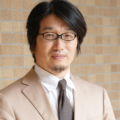Prevent Japan from bankruptcy due to the shortage of workers Hold discussions on coexistence with foreigners Shortage of workers equal to the period of the bubble economy

Kinosaki hot-spring district, Toyooka City, Hyogo Prefecture
The effective opening-to-application ratio in March 2017 was 1.45, a high value for the first time in 26 years and 4 months since November 1990. If the present situation continues, Japan may fall into bankruptcy due to the shortage of workers. The time has come when we should seriously consider the role of foreigners as people who support Japanese economic society and local communities.

Isoyama Tomoyuki, Business Journalist
The Kinosaki Hot Spring is located close to the spot where the Maruyama River flows into the Sea of Japan in Toyooka City, Hyogo Prefecture. The hot spring resort, which is known for the novel Kinosaki ni te by Shiga Naoya, features lines of wooden hot spring inns along the Otani River, which has willow trees lining its banks. The area exudes a unique atmosphere.
In the last few years there has been an increase in the number of foreign tourists who want to enjoy this Japanese atmosphere, as well as Japanese tourists. 40,000 foreign tourists now come to the area every year, comprising more than 5% of all tourists.
The biggest problem faced by inns in Kinosaki Hot Spring is the shortage of workers. Guest room attendants and cooking supporters are in short supply. According to a questionnaire conducted by the Inn Business Union, 77% of 35 inns answered that they were short of guest room attendants. This revealed that 43% of inns halt sales due to the shortage of workers, even if they have vacant rooms.
President Nishimura Soichiro of Nishimuraya, a long-established inn, says with a sense of crisis, “We recruit university graduates from tourism departments around the country. But it is not enough. A particularly serious problem is the fact that guestroom attendants are rapidly growing older. If this situation continues, we will soon be unable to manage.”
Inn circles in Kinosaki have expectations for the foreign workforce. However, inn guestroom attendants are not included in the conventional framework, such as skill training. Last year, they began accepting trainees from Vietnam as a pilot test in the area of daily meals. In addition, Yunomachi-Kinosaki, a company in Kinosaki Hot Spring, is playing a central role by beginning to accept Taiwanese and Indonesian students for internships. Four students will come in April this year, and another ten will come in June. They will stay for six months to a year and work at inns in the form of training based on the certification of school credits. They are taking preventive measures in the form of training.
The Japanese government is keen to increase foreign tourist numbers. More than 24 million foreign tourists came to Japan in 2016, and the government aims to reach 40 million foreign tourists by 2020. This is an expansion of inbound tourists, and it is essential to develop and expand inns and hotels for this purpose. However, the inn industry is afflicted by the shortage of workers. Nishimura, who was appointed as the Director of the Nationwide Inn and Hotel Life Hygiene Union Association in April this year, visits Diet members and lobbies them to lift the ban on foreign workers for the inn industry.
The government is attempting to use special national strategic areas to achieve a breakthrough. A revised bill that has already been approved at a Cabinet meeting aims to establish a new framework for accepting foreigners who will be Cool Japan human resources as employees. This may enable foreign workers who pick up Japanese traditions by working at inns and convey them to foreign countries and who convey Japanese culture to foreign tourists from foreign countries through inns to acquire working visas in special national strategic areas. Because Kinosaki is located in Hyogo prefecture, which has already been designated as a special national strategic area, it will utilize the special national strategic area to accept foreigners in cooperation with the prefectural government and the Toyooka City government.
In the situation where the shortage of workers is as serious as it was during the period of the bubble economy, it is imminently necessary to accept foreigners as workers. In a statement in the Diet, Prime Minister Abe Shinzo repeated that the government would not adopt the so-called immigration policy, and this stance constitutes the core of the current government policy.
There are two reasons why the government has maintained the policy of not accepting unskilled workers. One reason is that they will deprive the Japanese of employment. The other reason is that if Japan accepts foreigners as unskilled workers, it may degrade the quality of the foreigners who will come to Japan.
In fact, however, in terms of the former, Japan is short of workers purely as a result of employing Japanese. As a result, foreigners will not deprive the Japanese of employment. The latter is a matter of how to build a system for accepting foreigners. Current illegal stays and the situation where foreigners work for different purposes degrade quality.
Many convenient methods were used to circumvent the government policy of not accepting unskilled workers. A major example of this is skill trainers. Under the slogan of transferring Japanese techniques to foreign countries, foreigners were used as unskilled workers at factories and farms that were no longer able to be managed by the Japanese. It is the official slogan of foreign students that has been used frequently in recent years.
But this arbitrary use of unofficial and official slogans may be the cause of problems in the future. Sakaiya Taichi, Cabinet Secretariat advisor and ex-Economic Planning Agency Director-General, repeatedly appealed for the necessity to lift a ban on immigration at government meetings. He says that the arbitrary use of unofficial and official slogans is dangerous. Even if foreigners come to Japan with a good image of the country, they will see the so-called 3D—demanding, dangerous and dirty work—in the workplace and will get to know the reality of foreigners being forced to do such work. Sakaiya says, “Young foreigners who return to their home countries after experiencing the negative aspects of Japan will never have a positive impression of Japan, and will dislike Japan.”
Kunimatsu Takaji, ex-National Police Agency Director and Swiss ambassador, says, “The Japanese government should adopt a clear policy of accepting settled foreigners who will live in Japan for many years.” Through the Outlook Foundation, of which Kunimatsu is Chairman, he drew up policy recommendations on accepting settled foreigners, and lobbies the government to adopt this policy. By the second policy recommendations that he formulated at the end of 2016, he put forward the abovementioned five points.
Kunimatsu says, “Even if Japan accepts foreigners as workers, they will start living in Japan as soon as they enter the country. The government should construct a proper system as soon as possible so that foreigners who come to Japan can be assimilated into Japan as residents and play a role in supporting Japanese society.”
That is, Kunimatsu argues that it is a serious problem that Japan allows foreigners to enter the country by using convenient methods merely to make up for the shortage of workers and paying attention to them solely as workers.
A team led by Kunimatsu visited government organizations in charge with its written recommendations. On December 20 last year, they visited Shiozaki Yasuhisa, the Minister of Health, Labour and Welfare. Minister Shiozaki asked Kunimatsu why he, who used to be a national police agency official, was keen to accept foreigners. Considering the frequently mentioned argument that accepting more foreigners will cause public disorder, Minister Shiozaki thought that police officials would be opposed to accepting immigrants.
Policy recommendations for accepting settled foreigners
-
- The government should formulate a clear policy of accepting settled foreigners.
- It is important to clarify a vision of accepting settled foreigners as residents.
- It is important to clarify that the government must take responsibility for conducting Japanese education.
- It is important to build bases to enable local settled foreigners to have exchanges.
- It is important to establish a Policy Committee for Settled Foreigners (provisional name) within the Future Investment Conference.
Kunimatsu says that he puts forward accepting foreigners from a personal perspective. If the current mass influx of foreigners gradually continues, however, it will affect the police officers who work onsite. If Japan allows foreigners to stay in the country illegally and work on the basis of visas for different purposes, it will cause an infestation of troublesome foreigners, which will result in public disorder.
Germany introduced a mass Turkish workforce from the 1960s to the 1970s. These workers, who were called “Gastarbeiter” (guest workers), became concentrated in German urban areas, formed Turkish communities and caused serious social unrest in the country. Their resulting poverty resulted in crimes, which led to divisions within German society.
Reflecting on this history, the German government declared in the 2000s that the country was a country of immigration. The German government requires foreigners who wish to immigrate to the country to take a German course of at least 400 hours’ duration in an effort to establish a system for accepting them as residents.
Finally, a similar move has commenced in Japan as well: the establishment of the Parliamentary League for Promoting Japanese Education, which consists of bipartisan Diet members. Nakagawa Masaharu, the former Minister of Education, Culture, Sports, Science and Technology, who is a major member of the parliamentary league and acting Chairman of the league, called for a system to be built to provide foreigners living in Japan with the opportunity to receive Japanese education, and established the parliamentary league. It will soon publicize the draft of the Basic Law on the Promotion of Japanese Education (provisional name).
In fact, a major problem is now occurring in areas that progressively accepted foreigners, including Hamamatsu. Children born of Brazilian parents are falling into a situation known as “double limited,” where they are unable to fully use either Portuguese, their native language, or Japanese, the language of the country where they live. These children cannot gain access to higher education or get good jobs, and fall into poverty. If this situation remains unchanged, the same mistake may be made as was made in Germany half a century ago.
Miyagawa Masakazu of Masahachi Limited, who engages in large-scale agriculture in Ogata Village, Akita, says, “We want human resources who will work together with us for many years, not a workforce solely for busy times. We hope that foreigners will become directors of our company.”
If you want to continue your business and make it grow among rapidly accelerating depopulation, it is essential to secure human resources. It is clear that you cannot overcome the situation by utilizing women and old people. If the current situation continues, the whole of Japan could fall into bankruptcy due to the shortage of workers. The time has come when we should seriously consider the role of foreigners as people who support the Japanese economy and local communities.
Translated from “Nihon no hitodebusoku-tosan wo fusege: Gaikokujin tono kyosei ni muketa giron wo ― Baburu-ki nami no hitodebusoku (Prevent Japan from bankruptcy due to the shortage of workers: Hold discussions on coexistence with foreigners),” Wedge, June 2017, pp. 29-31. (Courtesy of WEDGE Inc.) [June 2017]




